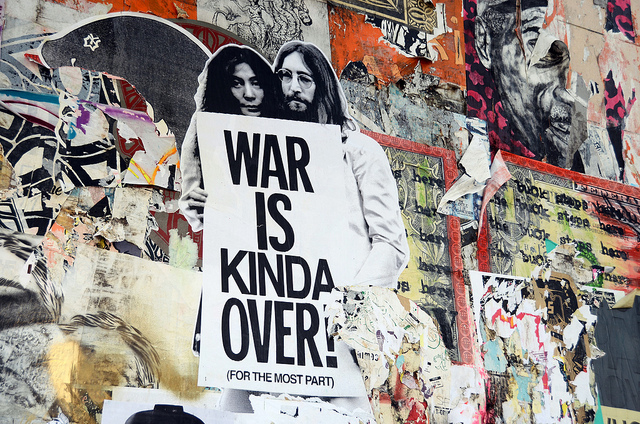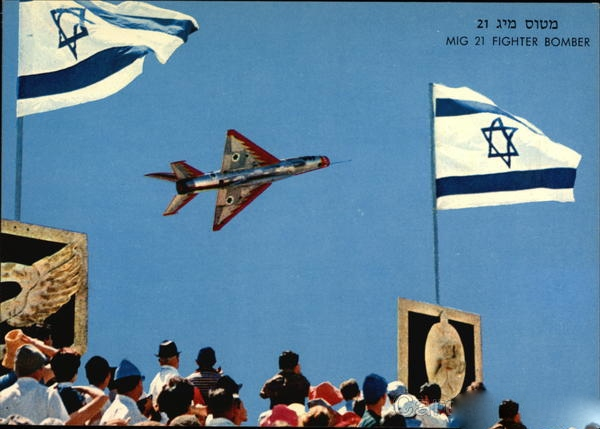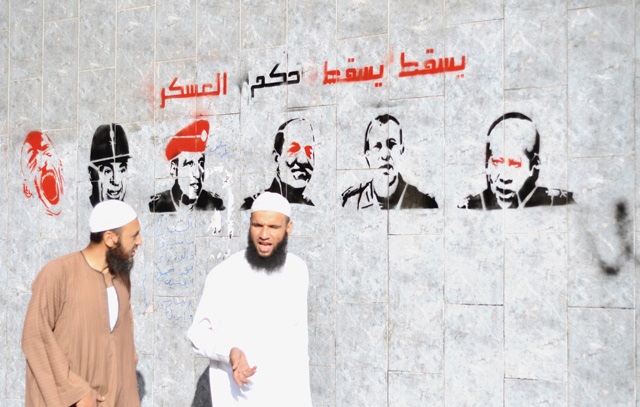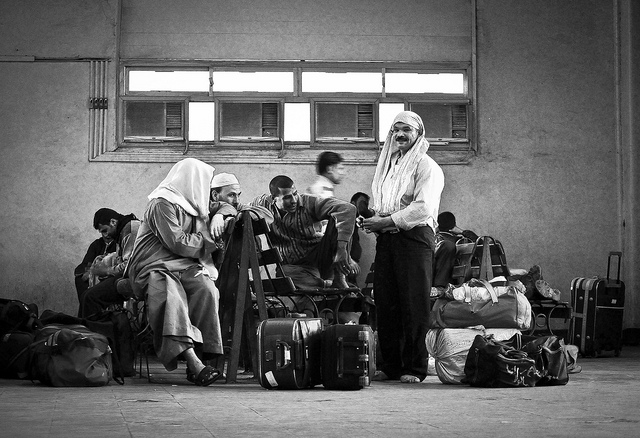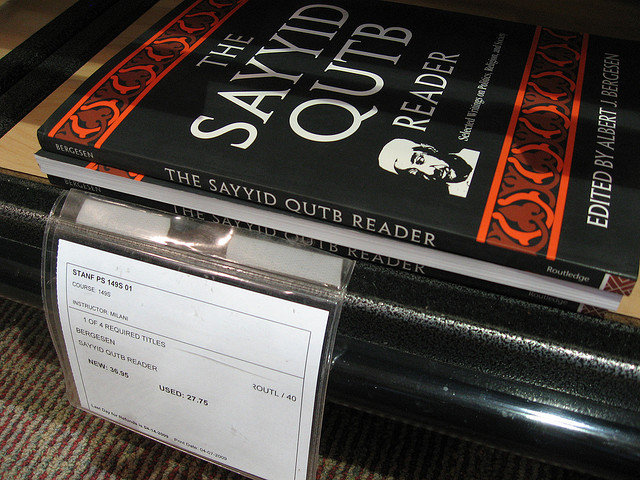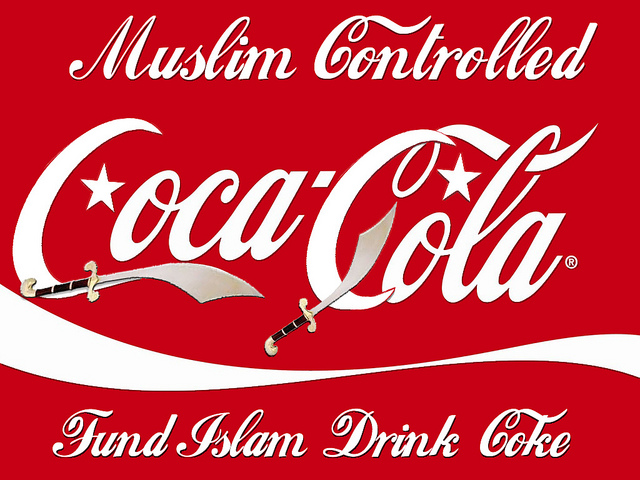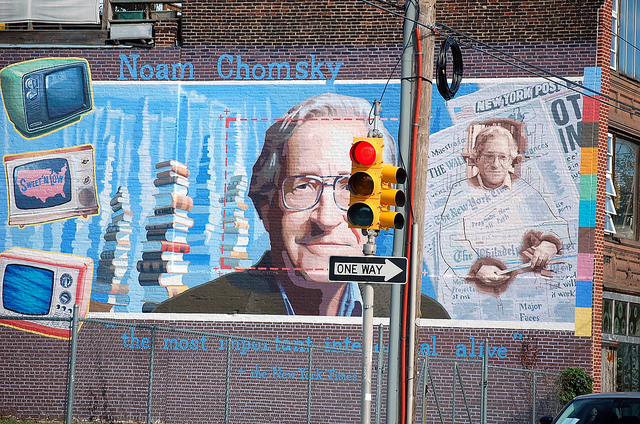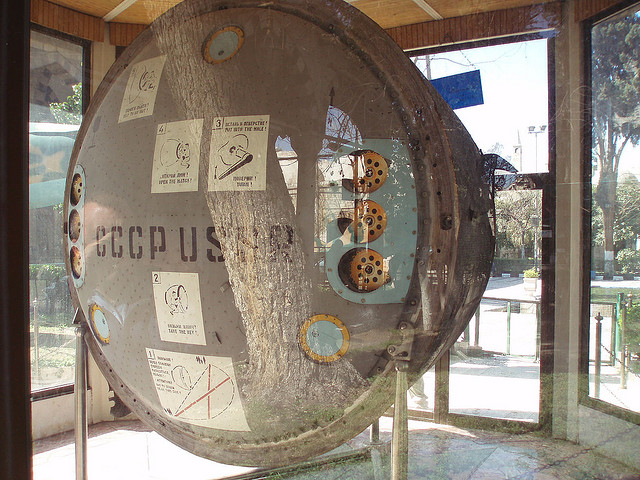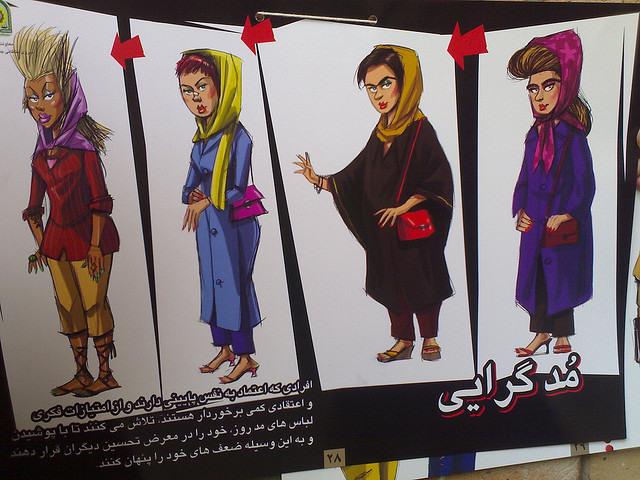I have wistful memories of the United Arab Emirates. I spent much of my childhood gazing over the sand dunes, and playing knockoff Super Nintendo games that couldn’t save properly. I felt safe and fulfilled in the paradisaical oasis. (More…)
Near & Middle East
The first news I received about the events now snappily referred to as the #ISIScrisis was that 500,000 thousand Iraqis were fleeing to somewhere, from somewhere, because of something. Such is the degree to which upheavals in the Middle East have become white noise. (More…)
On March 27th 2014, Israeli Prime Minister Benjamin Netanyahu abstained from the vote at the UN General Assembly on a resolution on Crimea. It was de facto support for Russian aggression. The significance of this event may not have hit the mainstream just yet, but it may soon outpace it in its own trajectory. (More…)
Every now and then, Tony Blair pops up out of nowhere and reminds us all he’s still out there on his private jet. It’s almost routine now. Of course, it should go without saying that politicians like Blair have never been as interested in combating genuine issues, like climate change, as they have been in waging wars in the Middle East. (More…)
What has ultimately determined how much, and to whom the U.S. extends aid is the potential leverage it affords over another country. Officials often justify sending main battle tanks, irrigation canal grants, and baby formula overseas to promote American values. (More…)
For all of Sayyid Qutb’s positive contributions to the Muslim world (and there were a few, despite his influence on figures like Osama Bin Laden) we cannot ignore the negatives. The most infamous is his pivotal role in inspiring modern Islamic anti-Semitism with his influential work Our Struggle Against the Jews (1950). The irony is that Qutb often sounds very Jewish. (More…)
For all his shortcomings, I find Sayyid Qutb to be treated somewhat unfairly. This was probably inevitable. After all, Qutb’s prison writings as a disenchanted member of the Muslim Brotherhood helped inspire two of the region’s most fear-inducing ideologies: Islamism, and Salafi jihadism. (More…)
Would the Prophet Muhammad have been anti-capitalist? Obviously, we cannot know. The Prophet’s experiences with mystical poetry, called “Revelation” by believing Muslims, are firmly grounded in their historical setting. They cannot offer direct insight on capitalism any more than they can provide a critique of Italian Futurism. (More…)
Noam Chomsky, the celebrated academic and political commentator, is perhaps the most famous left-wing public intellectual alive. Since rising to widespread prominence as a fierce critic of the Vietnam War, he has developed into something of an American Solzhenitsyn: a dissident bitterly denounced at home, but admired internationally (thankfully without the gulags.) (More…)
Jihad is not just an obsession in my country of Pakistan. The entire region has become enamoured with the idea, even as it rejects Salafi jihadist groups such as Al-Qaida and the Taliban. It is not because of a debate between liberalism and conservatism, or whether or not Islam is compatible with Enlightenment values. It is because for many Muslims, Islamism is the new post-Soviet Marxism. (More…)
What will Islam look like in five billion years? It is our responsibility as Muslims to find an answer. Readers may scoff at the inquiry as childish, but if humanity really does survive that long (and what’s the point if we assume that it won’t?) then we have to grapple with the question of how our faith will look in the distant future. (More…)
The term ratchet, which comes to us from African-American Vernacular English, is obviously derogatory. It’s several kinds of derogatory though: being called a ratchet is an insult to class, status, and racial standing. The word is an indictment of the coarseness that supposedly defines plebeiean femininity in America. (More…)

